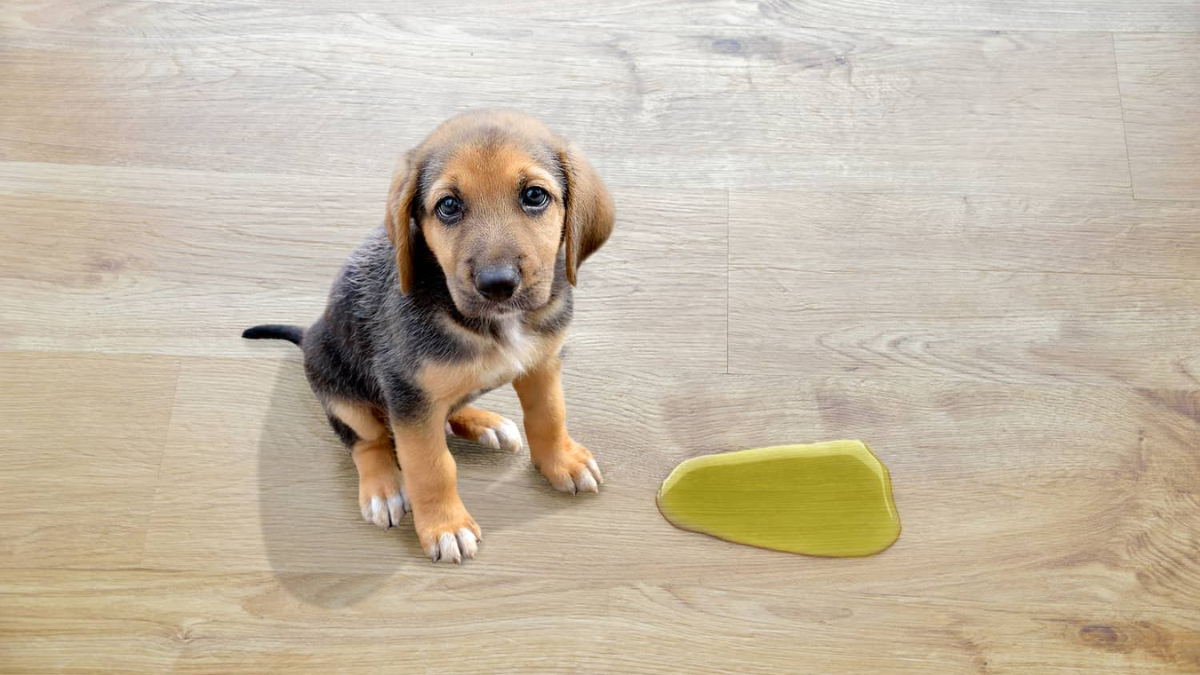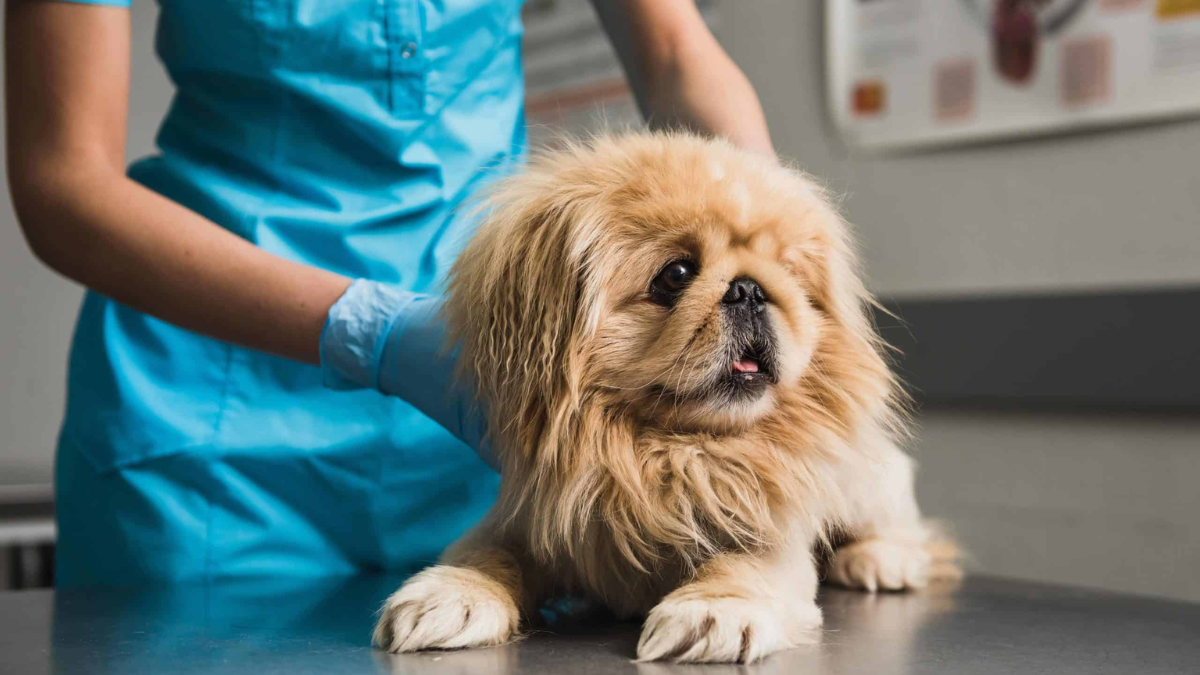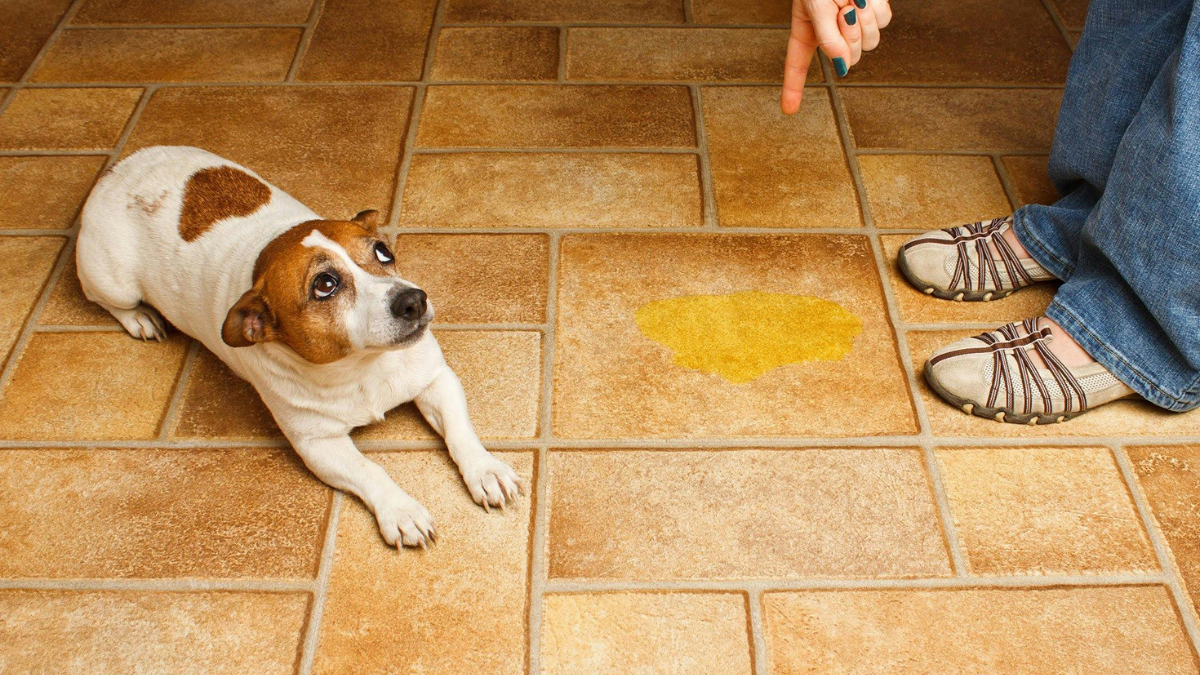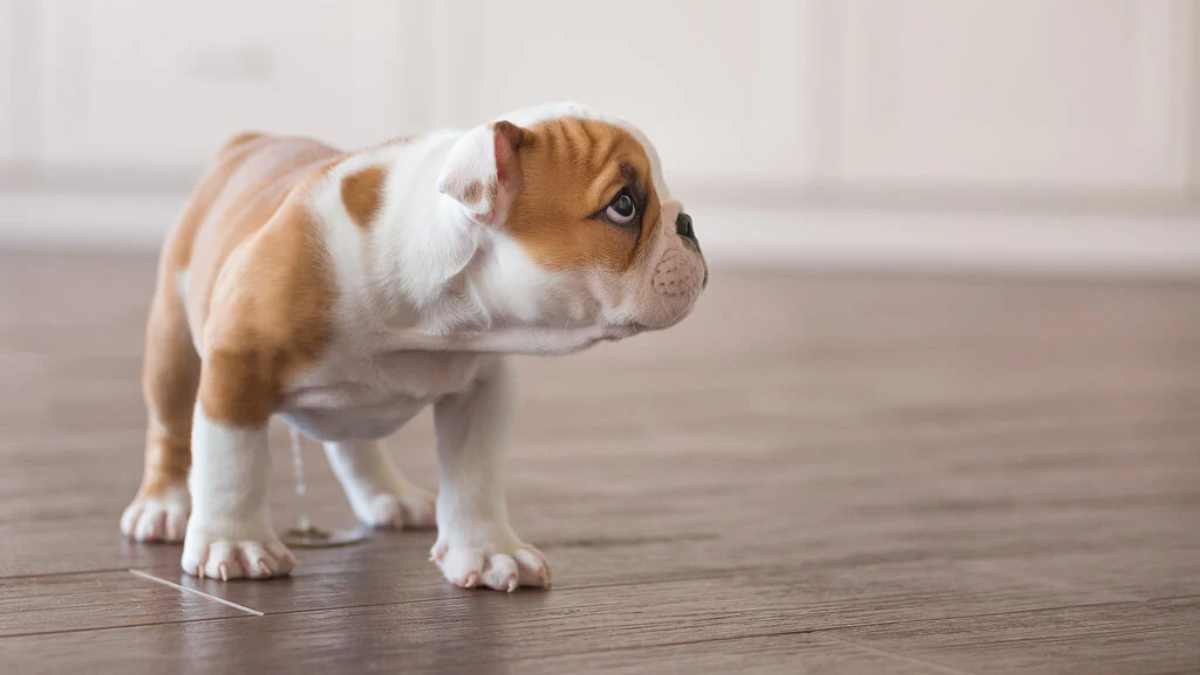Crystals in dog urine can be a sign of underlying health issues. While some crystals are normal and harmless, others can cause discomfort and even lead to serious health problems. As a responsible dog owner, it is important to be aware of the foods that can cause crystals in your dog's urine. What Foods Can Cause Crystals in Dog Urine? Understanding which foods can contribute to crystal formation can help you make informed decisions about your dog's diet and overall health.

One of the most common types of crystals found in dog urine is struvite crystals. These crystals are formed when the urine is too alkaline, and they can be caused by a diet high in magnesium, phosphorus, and protein. Foods that are high in these minerals include beef, pork, lamb, chicken, and fish.
Another type of crystal that can form in a dog's urine is calcium oxalate crystals. These crystals are formed when the urine is too acidic and can be caused by a diet high in oxalates. Foods that are high in oxalates include spinach, rhubarb, beets, and nuts. It is important to note that not all dogs will develop crystals from eating these foods, but it is something to be aware of if your dog is prone to urinary issues.
Understanding Urine Crystals in Dogs
Urine crystals in dogs are tiny, solid materials that form in the urine for various reasons. These crystals can cause discomfort and pain to dogs, and if left untreated, they can lead to serious health problems. Understanding the types, causes, symptoms, and detection of urine crystals in dogs is crucial to prevent and treat this condition.
Types of Urine Crystals
Several types of urine crystals can form in dogs, including struvite crystals, calcium oxalate crystals, uric acid crystals, cystine crystals, and ammonium urate crystals. Struvite crystals are the most common type and are often associated with urinary tract infections. Calcium oxalate crystals are another common type and can be caused by an improper diet or liver disease. Uric acid crystals are rare but can occur in dogs with liver disease or genetic disorders. Cystine crystals are also rare and are caused by a genetic disorder. Ammonium urate crystals are associated with liver disease and portosystemic shunts.

Causes of Urine Crystals
Several factors can contribute to the formation of urine crystals in dogs, including diet, pH levels, dehydration, infection, and liver disease. A diet that is high in minerals such as calcium, phosphorus, and magnesium can increase the risk of crystal formation. Dehydration can also cause urine to become more concentrated, making crystal formation more likely. Infection and inflammation in the urinary tract can also contribute to crystal formation. Liver disease can affect the metabolism of certain substances in the body, leading to crystal formation.
Symptoms and Detection
Symptoms of urine crystals in dogs can include straining to urinate, blood in the urine, frequent urination, and discomfort while urinating. If left untreated, urine crystals can lead to urinary tract infections, bladder stones, and kidney damage. Detection of urine crystals can be done through a urinalysis, which can also determine the type of crystal present. X-rays and ultrasounds can also be used to detect bladder stones or other abnormalities in the urinary tract.
Role of pH Levels
The pH level of a dog's urine can also play a role in crystal formation. Urine that is too acidic or too alkaline can increase the risk of crystal formation. The ideal pH level for a dog's urine is between 6.0 and 6.5. A diet that is high in acidifying or alkalizing ingredients can affect the pH level of a dog's urine. Monitoring and adjusting a dog's diet can help maintain a healthy pH level and prevent crystal formation.

In conclusion, urine crystals in dogs can be a serious health concern if left untreated. Understanding the types, causes, symptoms, and detection of urine crystals is crucial to prevent and treat this condition. Maintaining a healthy diet, monitoring pH levels, and seeking veterinary care when necessary can help ensure the health and well-being of dogs.
Diet and Nutrition
A dog's diet plays a crucial role in maintaining the pH balance of its urine. An imbalanced diet can lead to the formation of crystals in the urine, which can cause discomfort and pain to the dog.
Impact of Diet on Urine pH
The pH level of a dog's urine is affected by the type of food it consumes. A diet high in protein and grains can lead to acidic urine, while a diet high in vegetables and fruits can make the urine more alkaline.
Foods to Avoid
Certain foods can increase the risk of crystal formation in dog urine. Foods high in sodium, such as processed meats and cheese, should be avoided as they can lead to the formation of calcium oxalate crystals. Similarly, foods high in oxalates, such as spinach and beet greens, should also be avoided as they can contribute to the formation of calcium oxalate crystals.

Recommended Foods and Supplements
To prevent the formation of crystals in dog urine, it is recommended to feed them a balanced diet that includes a variety of proteins, vegetables, and fruits. Adding supplements such as potassium citrate and cranberry extract can also help maintain a healthy urinary tract. Prescription diets that are specifically formulated to prevent crystal formation can also be beneficial for dogs at risk.
Overall, maintaining a balanced and nutritious diet is crucial for preventing the formation of crystals in dog urine. Adequate water intake is also important to ensure that the urine is diluted, reducing the risk of crystal formation.
Health Conditions and Breeds
When it comes to crystals in dog urine, certain breeds and health conditions can increase the risk. In this section, we will explore the breeds and health issues that are commonly associated with this condition.
Predisposed Dog Breeds
Some dog breeds have a higher risk of developing crystals in their urine due to genetics. Breeds such as Lhasa Apso, Miniature Schnauzer, Yorkshire Terrier, Bichon Frise, Newfoundland, English Bulldogs, Shih Tzus, and Maltese are among those at a higher risk.
Associated Health Issues
In addition to breed predisposition, certain health issues can also increase the likelihood of crystals forming in a dog's urine. Urinary tract infections (UTIs), kidney and bladder stones, bladder infections, kidney failure, and cancers can all contribute to the formation of crystals.
It's important to note that while these breeds and health conditions may increase the risk of crystals in urine, any dog can develop the condition. Regular check-ups with a veterinarian and a balanced diet can help reduce the risk of crystals forming in your dog's urine.

Diagnosis and Treatment
Diagnostic Procedures
When a dog shows symptoms of crystals in their urine, the veterinarian will perform a urinalysis to confirm the diagnosis. In some cases, an X-ray or ultrasound may be necessary to detect the presence of stones or crystals in the bladder or kidneys.
Treatment Options
The treatment for crystals in dog urine depends on the severity of the condition. In mild cases, the veterinarian may recommend a change in diet and increased water intake to help dissolve the crystals. Prescription medications may also be prescribed to help dissolve the crystals.
In more severe cases, surgery may be necessary to remove the crystals or stones from the bladder or kidneys. This is typically reserved for cases where the crystals are causing significant discomfort or obstruction.
Preventing Recurrence
Once the crystals have been treated, it is important to take steps to prevent recurrence. This may include a change in diet to a prescription diet designed to prevent crystal formation, increased water intake, and management of any underlying medical conditions that may have contributed to the development of crystals.

Regular monitoring through urinalysis and follow-up appointments with the veterinarian can help ensure that the crystals do not return.
Conclusion:
In conclusion, understanding the impact of diet on canine health is paramount, particularly concerning the formation of crystals in dog urine. The question "What Foods Can Cause Crystals in Dog Urine?" highlights the importance of dietary choices in preventing urinary issues in our beloved pets.
Through comprehensive research and analysis, we've uncovered several key culprits that can contribute to crystal formation in dogs' urine. Foods high in certain minerals like calcium, phosphorus, and magnesium can exacerbate the problem, leading to discomfort and potential health complications for our furry companions.
By being vigilant about the ingredients in our dogs' diets and consulting with veterinarians for tailored nutritional advice, we can effectively mitigate the risk of crystal formation. Opting for balanced, high-quality dog foods and incorporating hydrating options like fresh fruits and vegetables can promote urinary tract health and prevent crystal buildup.
Ultimately, our dedication to providing optimal nutrition plays a crucial role in safeguarding our dogs' well-being and ensuring their long-term vitality. Through informed dietary choices and proactive healthcare measures, we can nurture happy, healthy companions for years to come, free from the burden of urinary crystals.
Frequently Asked Questions (FAQs)
- What dietary changes can help prevent bladder stones in dogs?
- Dogs prone to crystal formation in urine should be fed a diet that promotes urinary tract health. A diet that is low in purines, oxalates, and magnesium, and high in moisture content can help prevent bladder stones. Additionally, feeding a diet that is formulated to maintain a neutral or slightly acidic urine pH can help prevent the formation of struvite crystals.
- Which ingredients in dog food are known to contribute to urine crystal formation?
- Ingredients high in purines, oxalates, and magnesium can contribute to crystal formation in a dog's urine. These ingredients include organ meats, fish, spinach, beet greens, sweet potatoes, and soy products.
- How can a dog's diet influence the development of struvite crystals?
- A dog's diet can influence the development of struvite crystals by affecting the pH of their urine. A diet that promotes a neutral or slightly acidic urine pH can help prevent the formation of struvite crystals. Additionally, a diet low in magnesium can help prevent the formation of struvite crystals.
- What are the symptoms indicating the presence of crystals in a dog's urine?
- Symptoms indicating the presence of crystals in a dog's urine include frequent urination, straining to urinate, blood in the urine, and difficulty urinating. If your dog is exhibiting any of these symptoms, it is important to seek veterinary care immediately.
- Are there any natural treatments effective for dogs with urine crystals?
- There are natural treatments that may be effective for dogs with urine crystals, such as increasing water intake and feeding a diet that promotes urinary tract health. However, it is important to consult with a veterinarian before making any changes to your dog's diet or treatment plan.
- What preventive measures can be taken to reduce the risk of urine crystals in dogs?
- Preventive measures that can be taken to reduce the risk of urine crystals in dogs include feeding a diet that promotes urinary tract health, providing fresh water at all times, and encouraging frequent urination. Additionally, regular veterinary check-ups can help detect and prevent the formation of bladder stones.